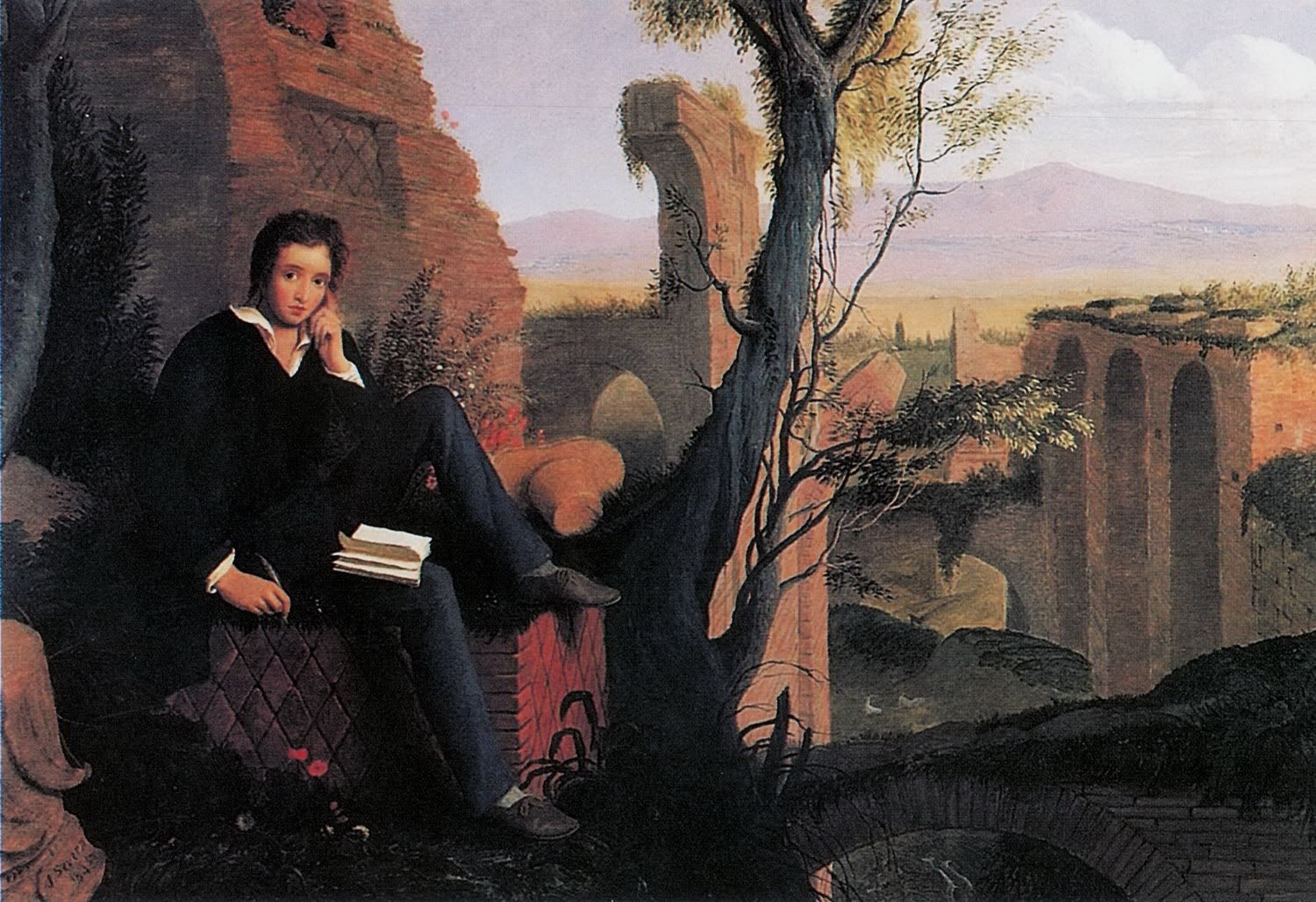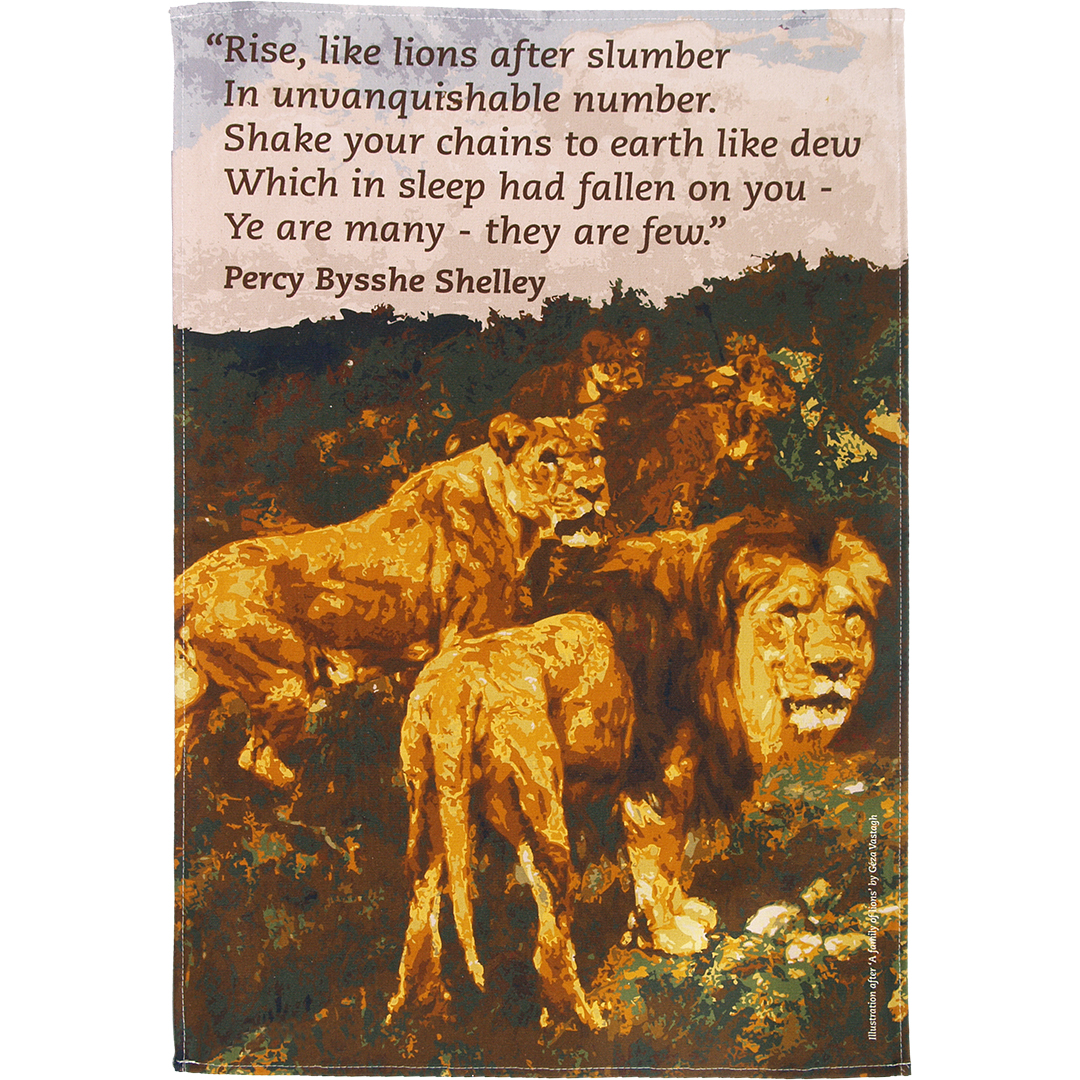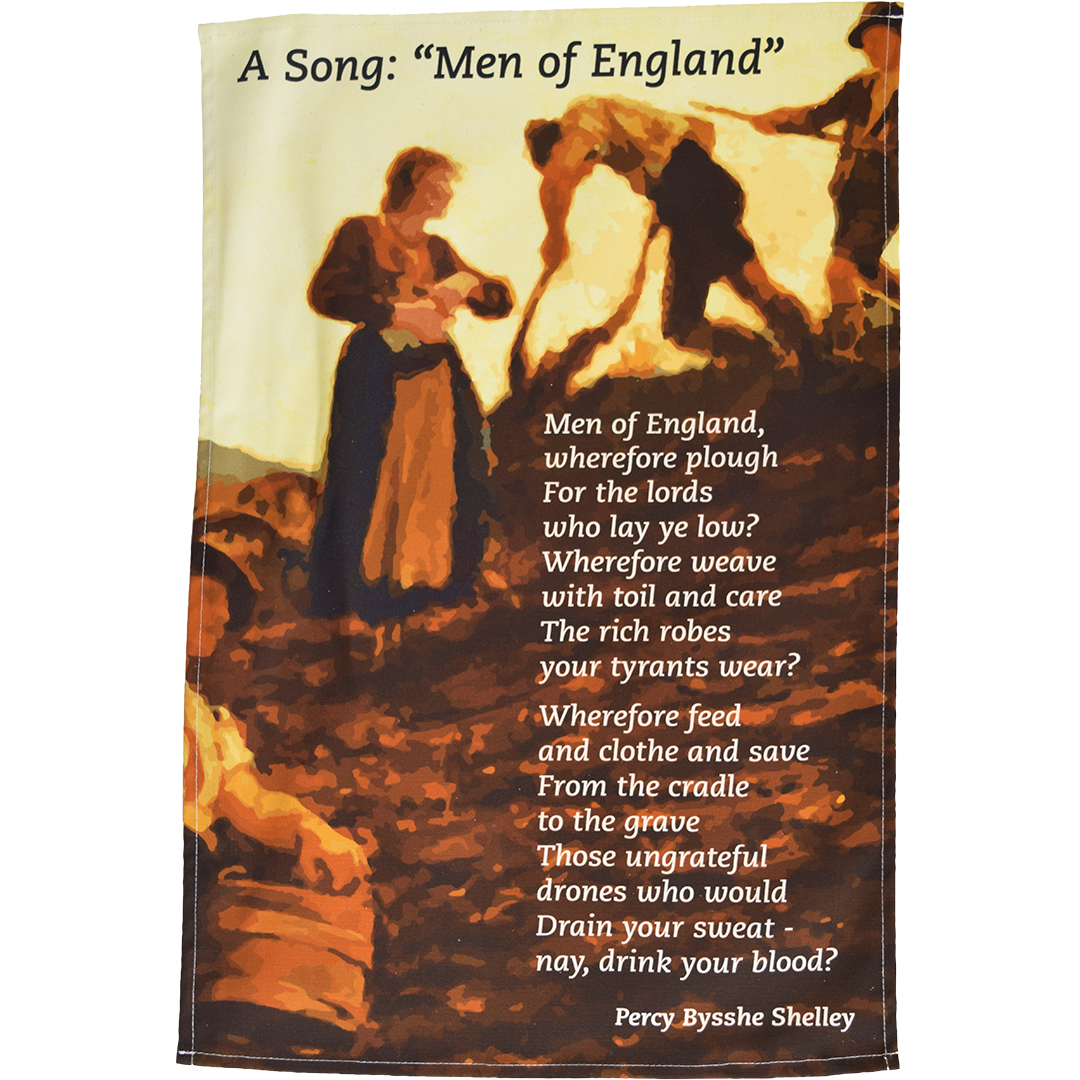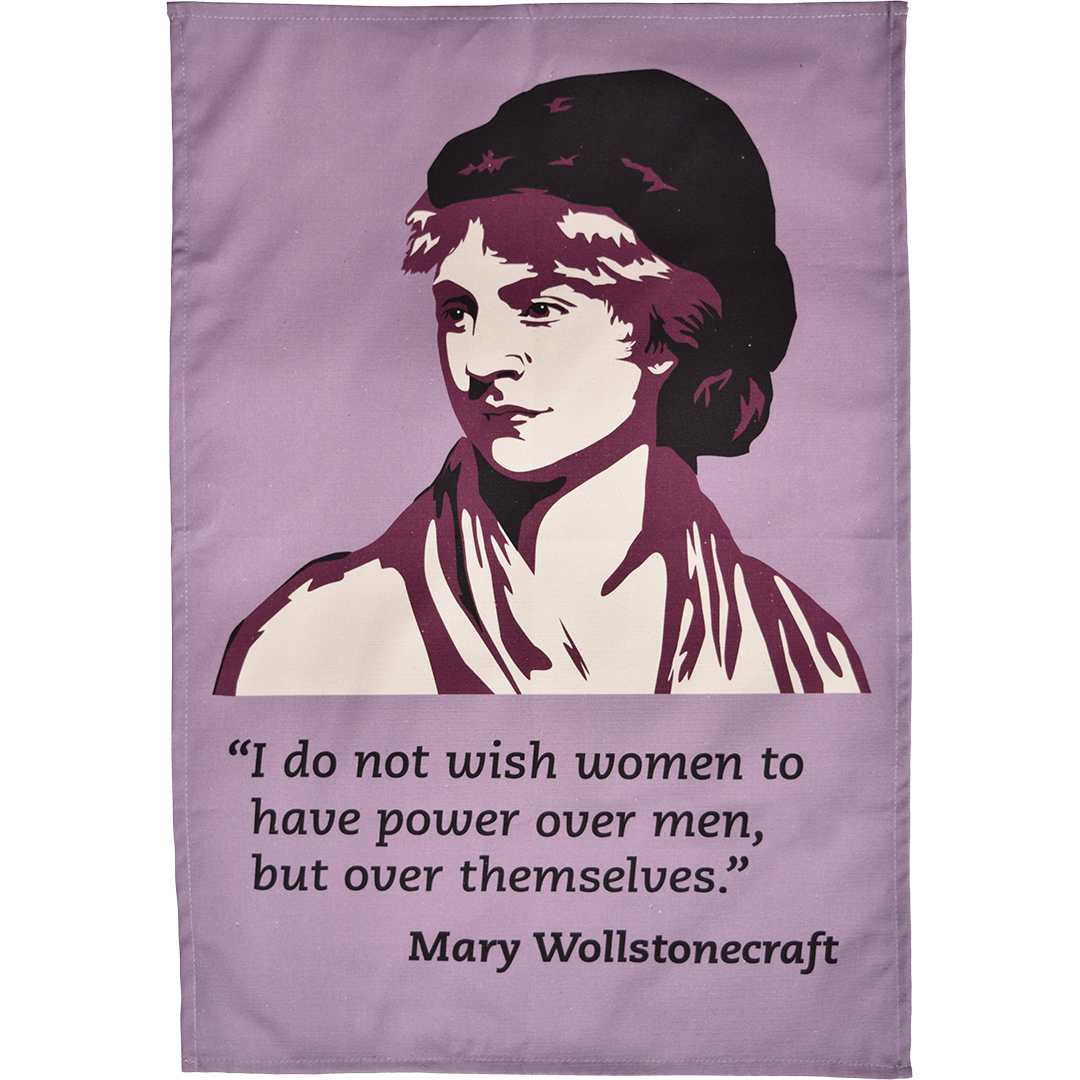Rise Like Lions: The Life and Work of Percy Bysshe Shelley
Posted by Pete on 8th Jul 2023

The poet whose words inspired Marx, Gandhi, Thoreau and countless others...
Percy Bysshe Shelley died on this day in 1822.
He wasn’t yet thirty years old, but since his death Shelley has become known as one of England’s greatest poets. He was a true giant of the Romantic era.
But he was more than just a cultural figure. There’s a reason why Shelley was the poet of choice for Karl Marx, Henry David Thoreau, Mahatma Gandhi and George Bernard Shaw.
Percy Shelley was into politics as well as poetry. Specifically, radical politics. Very radical politics.
These lines from Percy Shelley's Masque of Anarchy inspired the slogan of the 2017 Labour Manifesto
Click to view our Percy Bysshe Shelley tea towel
A scion of an aristocratic English family in West Sussex, Percy wasn’t born to be a revolutionary.
His dad was an MP, and he went to school at Eton, then Oxford University.
But under the surface of this elitist upbringing, a rebel was being formed. Shelley had an inquisitive mind. He was fascinated by science, and he was always trying to push the boundaries of knowledge.
He also tried to push the boundaries of the political status quo around him. Shelley was bullied by his snobbish peers at Eton for refusing to take part in the bizarre ritual whereby younger pupils were made to act as personal servants to older ones.
Already, as a child, Shelley detested social hierarchy.
Written in the same year as The Masque of Anarchy, Song to the Men of England railed against the exploitation of workers by wealthy landowners
Click to view our Men of England tea towel
His rebel streak became more coherent and ambitious as he grew more politically conscious.
At university in the early 1810s, despite the wider, reactionary atmosphere in Britain during the era of the French Revolution, Shelley began to embrace an atheistic critique of the ecclesiastical establishment.
He was soon expelled for his agitation, but that didn’t stop him.
In 1811, he travelled to Dublin, where he began writing and speaking in favour of giving Catholics full civil rights, and ending the oppression of the Irish poor.
Anxious that Shelley might cause some serious trouble, the British Home Office began to spy on him.
His poetry, increasingly well-known, also coursed with his radical political outlook. In Queen Mab (1813), Shelley championed
“Those who have struggled, and with resolute will
Vanquished earth’s pride and meanness, burst the chains,
The icy chains of custom, and have shone
The day-stars of their age…”
In tandem with his political exploits, Shelley – a philosophical advocate of free love – had a pretty exciting personal life.
But in the summer of 1814, he met Mary Wollstonecraft Godwin, better known to us now as Mary Shelley.
Mary was the daughter of two of the era’s greatest radical writers: the proto-feminist philosopher Mary Wollstonecraft and the anarchist thinker William Godwin.
Percy was already married to a woman called Harriet Westbrook at this point, but he and Mary quickly fell in love. And despite the friction and anger it caused among their respective families, they eloped.
Wollstonecraft died in 1797, but her writing had a significant influence on the political radicalism of her daughter's husband
Click to view our Mary Wollstonecraft tea towel
The new Shelley household spent the next few years moving around Britain and Europe, crossing paths with famous writers like Lord Byron, while also dodging creditors and bailiffs.
For his various transgressions of Georgian social norms and political expectations, Percy had been largely cut off from his family’s wealth.
In 1818, Percy and Mary moved to Italy, where he would spend the last years of his life.
It was also during this period that Percy Shelley’s radical politics became most focused.
He began to organise a radical liberal political journal with other British activists then in Italy. And he celebrated the wave of popular revolutions which broke out across southern Europe in 1820.
In September 1819, while living in Livorno, Shelley got news of the Peterloo Massacre back in Manchester, where the British army had killed a score of working-class protestors, agitating for the right to vote regardless of property.
Shelley, who would die a few years later in a boating accident, was enraged by the news of Peterloo. From this rage, he created his most lasting poem, The Masque of Anarchy.
Addressed to the working class in Britain, it was a protest anthem for the ages, culminating in these oft-quoted lines:
“Rise, like lions after slumber
In unvanquishable number!
Shake your chains to earth like dew
Which in sleep had fallen on you:
Ye are many – they are few!”
In its call for mass, nonviolent disobedience to achieve democratic freedom, it became a favourite of the Chartists, Henry David Thoreau, and, through him, Gandhi, who would often quote the poem to anticolonial protestors in India.
Through The Masque of Anarchy, and his other radical poetry, Percy Shelley lives on in the movements for democracy and the liberation of the working class, two centuries after his death.



